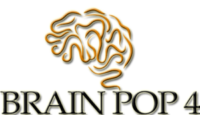More Singaporeans have been exploring holistic means to maintain their physical and mental health in recent years, and Traditional Chinese Medicine is an ancient method that has been picking up speed. Going to a Traditional Chinese Medicine clinic is no longer just for curing ailments anymore—it’s become an integral part of preventive self-care. Based on the principles of balance and prevention, TCM has plenty of alternatives for people who want natural and customised means of maintaining health.
Learning the Fundamentals of TCM
Traditional Chinese Medicine is founded on the concept of harmony in the body and between the body and the outside environment. It functions on the principles of qi (life energy), yin and yang, and the five elements. These principles direct the way symptoms are interpreted and treatments are selected. Unlike modern medicine, which tends to address the symptom in isolation, TCM considers the whole person, including lifestyle, emotional status, and long-term patterns of health.
In a Traditional Chinese Medicine clinic, a patient can receive a range of treatments that work together. These can consist of acupuncture, herbal medication, tui na massage, cupping therapy, and dietary therapy. The aim is to restore balance as well as provoke the body’s natural healing mechanism, which makes it a preventive and flexible health care system.
How TCM Supports Daily Self-Care
Lots of people in Singapore are adding TCM to their daily lives for its mild and effective assistance. One common method is taking herbal teas or powders that are specifically prescribed according to one’s constitution. These recipes are not generic—they are customised by a TCM doctor to treat imbalances like stress, lethargy, digestive problems, or insomnia.
TCM also promotes simple but effective lifestyle practices. Slow exercises like qi gong and tai chi are often prescribed to promote circulation and mental clarity. Sleep hygiene and conscious eating—selecting warm, nourishing foods that are appropriate for your body’s requirements—are at the centre of TCM-conscious living. These guidelines make TCM a functional and intuitive way of staying well on your terms.
Seeing a TCM Physician: What to Expect
Your initial consultation with a TCM doctor usually starts with a thorough consultation. This may include queries concerning your sleep, diet, moods, and lifestyle, followed by physical examinations like tongue and pulse diagnosis. Depending on this holistic assessment, the doctor will create a treatment plan that could include herbs, acupuncture treatments, or lifestyle modifications.
It is natural to wonder whether you should begin this process, particularly if you are accustomed to Western medicine. Yet numerous patients in Singapore have discovered that TCM’s emphasis on prevention and body-wide healing provides a precious complement. Whether you need to cope with stress, enhance immunity, or aid recuperation from a chronic condition, an experienced TCM physician can assist you in determining how best to proceed safely and efficiently.
TCM for Mental and Emotional Health
In addition to physical well-being, TCM also treats mental and emotional health. Anxiety, restlessness, and long-term stress are considered interferences in the smooth flow of qi or imbalances in the liver and heart systems. TCM helps restore tranquillity and lucidity through mood-regulating acupuncture points and spirit-soothing herbs.
Amidst Singapore’s bustling city life, these calming practices become an anchoring experience. Most people notice better sleep, emotional balance, and general energy levels after experiencing regular care. For someone looking for an organic and sustainable remedy, a trip to a Traditional Chinese Medicine clinic can be made a part of a daily self-care routine.
ALSO READ: The Holistic Benefits of Traditional Chinese Medicine: Healing Body, Mind, and Spirit
Blending TCM into Contemporary Lifestyles
One of the best aspects of TCM is its ease of adaptation to a contemporary lifestyle. You don’t have to transform your entire schedule; minor, consistent changes tend to make the biggest difference. Whether the insertion is scheduling herbal teas, adapting eating habits, or weekly acupuncture sessions, incorporating TCM is about creating consciousness and purposeful living.
Many busy professionals in Singapore find that visiting a TCM physician helps them reset from work stress and digital fatigue. TCM’s personalised care model means that each visit brings new insights about your body and how to support it through changing seasons, life stages, or stressors. This responsive nature makes it a powerful ally in maintaining your overall well-being.
Conclusion
Applying Traditional Chinese Medicine to self-care is not solely about curing disease—it’s about developing balance, strength, and awareness in your everyday living. Whether you are a newcomer to the practice or returning to it after a while, discovering the assistance offered by a TCM practitioner can contribute to your well-being naturally and purposefully.
Contact NovaHealth TCM Clinic today to make the first step towards integrative wellness.

